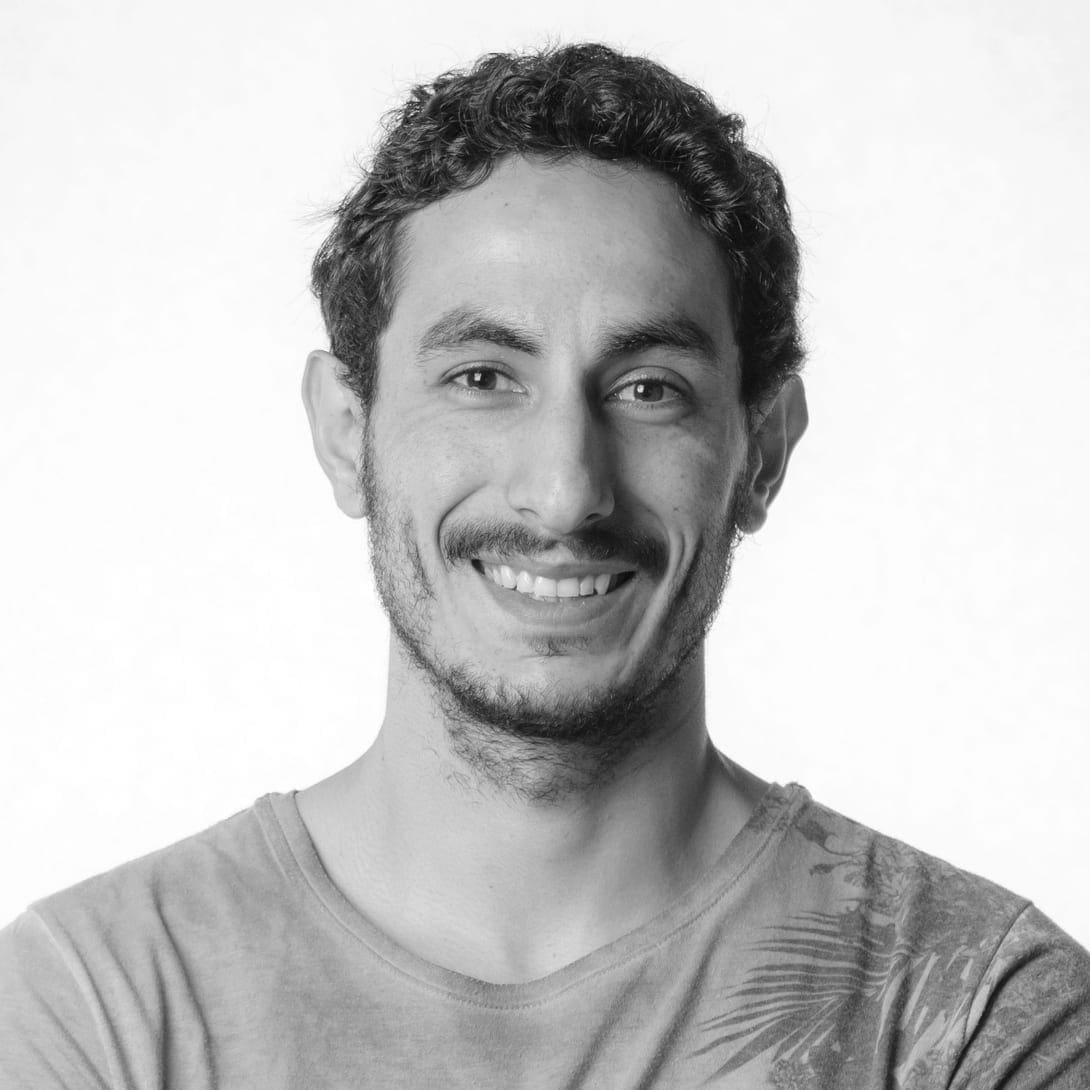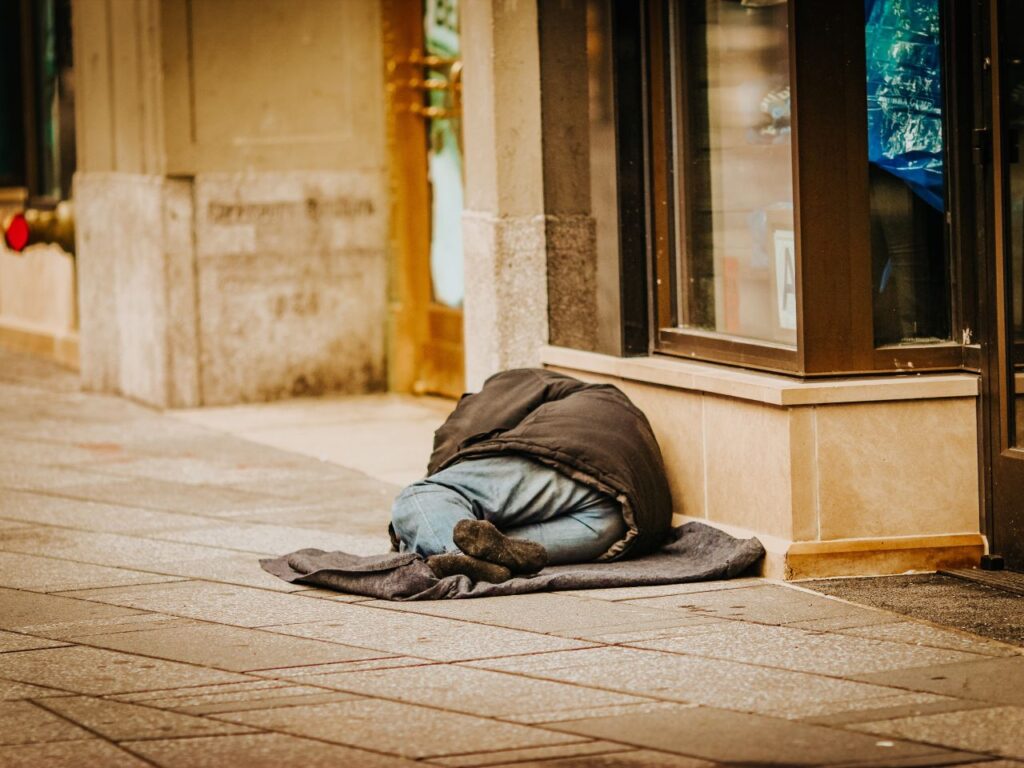A story of homelessness: “At one time, I thrived in a spacious home with a lush garden. Now charity-donated clothes cling to my back.”
One afternoon in the square, I saw a familiar face from the soup kitchens. The man approached me and asked how I was doing. I answered in a word: “Starving.” I hadn’t eaten all day. Though he only had three empanadas, he generously offered me one. His act of sharing this scant meal struck me as profoundly kind.
- 9 months ago
November 5, 2023
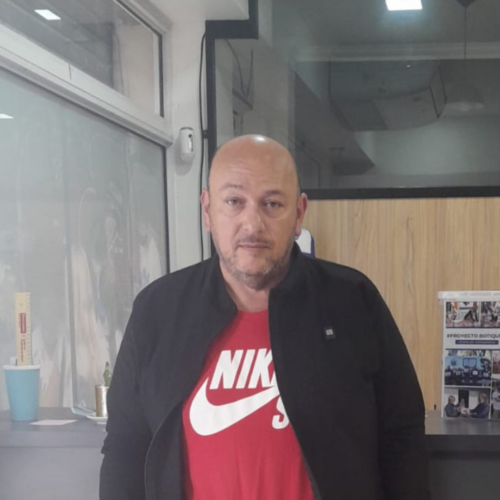
MORÓN, Argentina – In a dim train car, I shift my body, seeking a sliver of comfort so I can fall asleep. The cold, hard floors and seats I typically encounter always present challenges, but the roof grants me some small solace. Hunger gnaws away at me, but I am grateful for the scrap of food I ate earlier. Life on the streets is unpredictable, and this story unfolds day by day.
Argentina’s economic crisis only seems to deepen with each passing year, mirroring my own downfall. At one time, I thrived in a spacious home with a lush garden, surrounded by luxuries and assured of four-square meals a day. Twice in my life, I have endured homelessness and now, charity-donated clothes cling to my back. It’s all I have left.
Read more stories on Argentina’s inflation at Orato World Media
Poverty punctuated childhood, but we filled our home with love, music, and books
At the age of four, my family migrated from Córdoba to Buenos Aires. It was the late seventies, and we were caught in the throes of political upheaval. My mother, once a policewoman and music teacher, juggled three jobs to keep my six siblings and me afloat. My father vanished one afternoon, never fulfilling his promise to return.
We lived a very simple life but did not face homelessness. We rarely had electricity or gas and lit fires inside our flat to cook a stew or warm water for mate cocido. Despite the hardships, my mother’s determination never wavered and she somehow managed to put bread on the table every day. Her tireless spirit propelled me to contribute to the family.
By the time I was seven, I spent my after-school hours selling eggs or pens on the streets, eager to help out. Nevertheless, my mother remained adamant that our education was crucial to our future. Even amidst scarcity in Argentina, education and culture remained the pillars of our upbringing.
We started each morning to the music of Vivaldi and my mother’s voice serenading us with love. Bach, Chopin, and Schubert became like a daily diet, as did the rich narratives of Dostoevsky, Tolstoy, Hesse, and Poe. We devoured books by candlelight, and it stirred the embers of my own creativity.
After achieving all my dreams, the peso took a nosedive
With grit and perseverance, I eventually climbed the corporate ladder and became a supervisor, then a regional manager. Success sweetened the simplicity of life I grew up with and I indulged my mother with experiences she never had before. I cherished taking her to the beach and watching her put her toes in the sand as the breeze danced and the cadence of the waves soothed our minds.
These moments of bliss brought me great joy and I felt like I was repaying her for all the sacrifices she made. When my mother died, it shattered me, leaving a deep void. This heartache propelled me to leave Argentina and seek solace across borders. My journey to Mexico, Panama, Honduras and Spain mended my spirit and I found jobs and financial stability abroad, but eventually the tide pulled me back home.
I purchased a home in a serene suburb in Argentina with my savings. The hardships of hunger and cold from my childhood felt like a lifetime ago. However, my stability would prove fleeting. In 2017, the lowering value of the dollar wreaked havoc on Argentina’s financial landscape, sending costs soaring.
As the peso took a nosedive, the gap between the estimates I wrote up for jobs and the actual costs devoured my profits, leading to a cascade of financial defeats. My once successful business morphed into a burden of debt and my demise seemed inevitable.
The economic crisis and a fire at my home left me with nothing
By the time the economic tides shifted in my country, my children were grown and on their own. My partner and I split up and I embraced independence. Yet, when I lost the security net I worked so hard to build, even rent became a luxury. Forced to relocate to a simple home far from the heart of the city, I felt like a puppet moving according to the erratic dance of the economy.
Then, in 2019, my world turned upside down. A devastating electrical fire engulfed my home, leaving me standing in the ashes of my life. With just a backpack and a bus card, I faced the stark reality of homelessness. A feeling of abandonment consumed me. As life indifferently bustled by, I spiraled into an abyss.

For two months, I stayed in a hospital waiting room for shelter. It was like a sanctuary in a dark world. In the shadows, my mother’s teachings rekindled my hope. “Accept reality to move forward,” her spirit instructed me. Clinging to this idea, I navigated homelessness, secured a spot for shelter at night, and began distributing resumes by day. I felt determined to reclaim my life.
During the pandemic, a job materialized, and I rented a place to live. I hoped the streets etched only a temporary scar into my heart, but in Argentina, certainty is a fleeting thing. The cliff always seems to loom nearby.
A second bout with homelessness proves harder than before
After I lost everything the first time, I responded with vigilance. I scrutinized every expense and prioritized work above all. My children lived their separate lives in another city and remained unburdened by my crisis. December 2022 brought a semblance of balance, as my earnings kept pace with Argentina’s rampant inflation. Then, an accident left me disabled, and without my productivity bonuses, the financial stability I achieved began to slip away.
I pushed relentlessly to be allowed to return to work early, but it was not enough. On March 21, 2023, a call from my boss proved to be a devastating blow. “Alejandro, you are fired,” I heard him say. That night, when I returned home, the door was chained. Behind that door lay all my belongings. At 53 years old, I felt my heart beating erratically. Uncertainty about the future left me afraid.
I sought refuge and safety from the dangers of the streets by going to the hospital. The shelter where I once stayed was now overflowing – a stark sign of the times. Overcrowded and inaccessible, it became clear just how many people faced this plight. I felt completely alone, my heart racing with anxiety as I worried about affording food and my medication. I found myself in a relentless struggle to survive.
Standing in line for meals becomes my job
Living on the streets, I confront homelessness head-on as part of the invisible crowd I once overlooked. A circuit of solidarity has emerged between us. It feels like the last refuge for people like me. I watch as families huddle in fast-food restaurants to escape harsh weather. Sympathetic staff occasionally hand out free coffee or a meal. The first time they gave me a burger, I could barely hold back my tears as I nibbled on the bread.
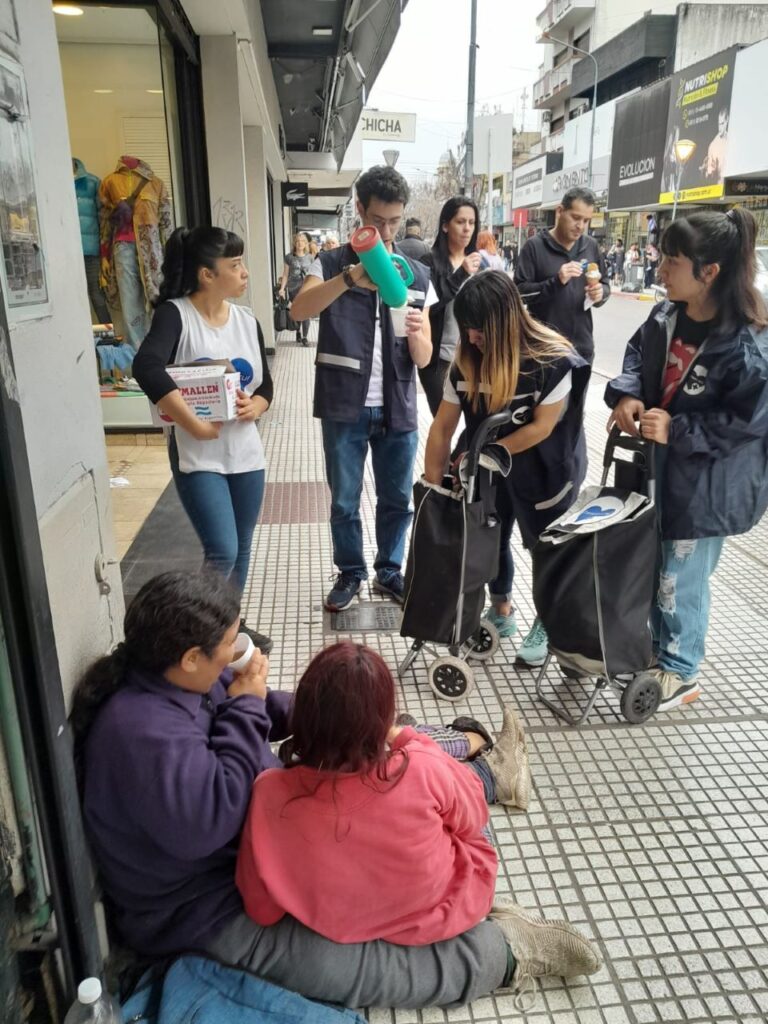
Eventually, I crafted a routine to secure food. On weekdays, I stand in line for breakfast and lunch. On Saturdays, I make my way to a different area for a snack, which I stretch out to cover my dinner. Sundays follow the same pattern in yet another district.
My days become a perpetual journey to secure a meal, but it never fully quells my hunger. Job hunting becomes a constant struggle. Without a printer, internet, or professional attire, hope remains scarce. I cobble together a resume and distribute it widely, but I often see discarded resumes littering trash bins – a stark reminder that my outreach likely shares the same fate.
I feel more compassion from fellow street-dwellers than from my government
One afternoon in the square, I saw a familiar face from the soup kitchens. The man approached me and asked how I was doing. I answered in a word: “Starving.” I hadn’t eaten all day. Though he only had three empanadas, he generously offered me one. His act of sharing this scant meal struck me as profoundly kind.
Indeed, I encounter more compassion from fellow street-dwellers than from my own government. Unhoused people tend to share what little we possess with one another. This same young man introduced me to Corazón Azul, an NGO providing meals on Saturdays. They began assisting me with my medication costs.
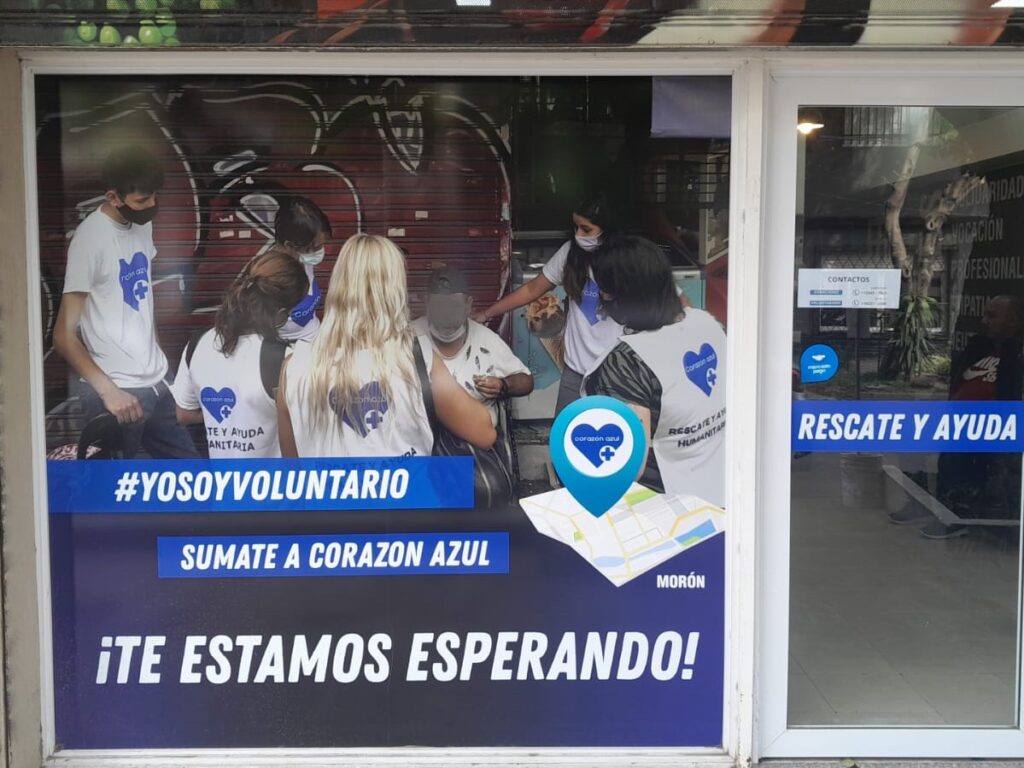
This group offered more than just sustenance; they provided a supportive presence and a listening ear. Half a year after losing my job, Argentina’s unemployment insurance came through. Though the support is meager, less than seven dollars, it affords me a room with a bathroom. The simple dignity of a bed and private washroom feels like a luxury now.
I see the disdain on the faces of passersby, and I hear the murmurs branding us as lazy and unwilling to work. These people do not bother to learn our stories. It stings, but I tune it out, choosing instead to focus on those who extend their hand to help. The rest I dismiss. Their judgment holds no value to me.
Surrender is not an option: “I find reasons to be thankful”
Each day, I navigate unpredictability with no idea what lies ahead. Yet, I still believe this life is unmistakably mine and will be shaped by my choices and willpower. My mother’s voice serves as a reminder that as long as I can think and act, opportunities await. Surrender is not an option.
My heart aches for Argentina, enduring decades of power-hungry leadership while ordinary lives falter. The sight of families with children making beds on the pavement stokes a fiery indignation inside of me. Homelessness should not be our reality.
I avoid the pitfall of self-pity and consider that countless others in Argentina face adversities like mine or greater. When I witness their agony, it tears at my very core. Yet, when I listen to the emptiness of political elite, I understand why so many Argentinians are driven to desperation.
Amidst it all, I find reasons to be thankful. The simple act of welcoming the morning sun offers a daily reminder that I have community. I am alive, well, and capable. Going from no shelter to a place I can call my own makes me feel like I have a guiding presence with me. Morning and night, I embrace life with a smile, sustaining my soul with optimism and transcending hunger and cold. It is this unwavering cheerfulness that truly nourishes me.
